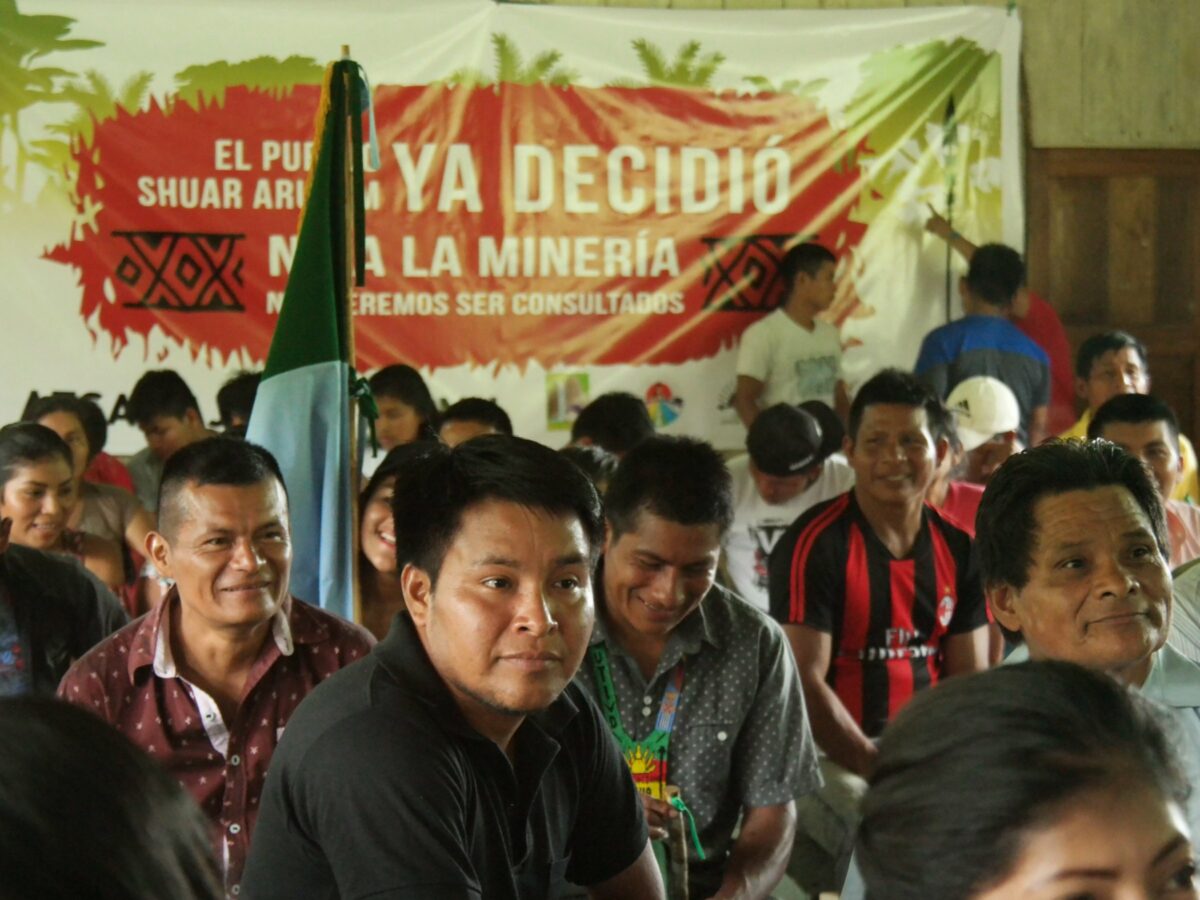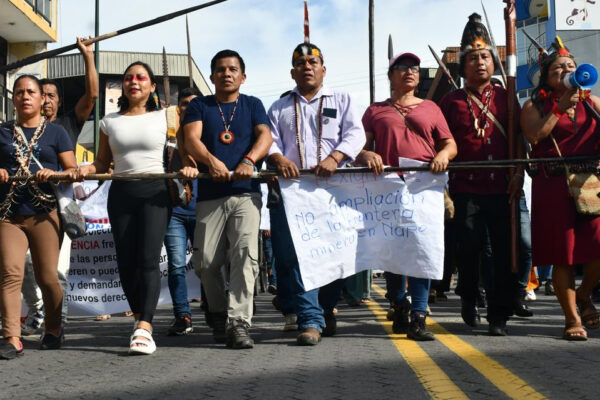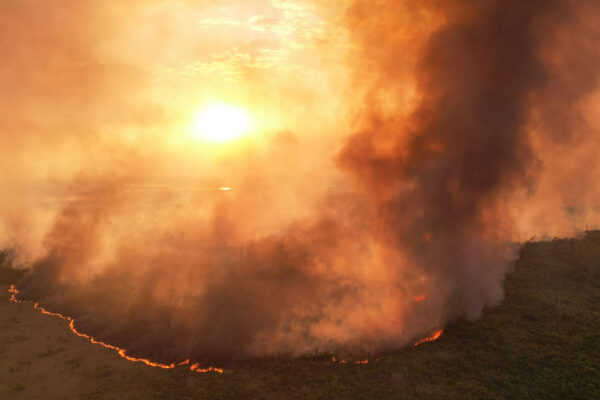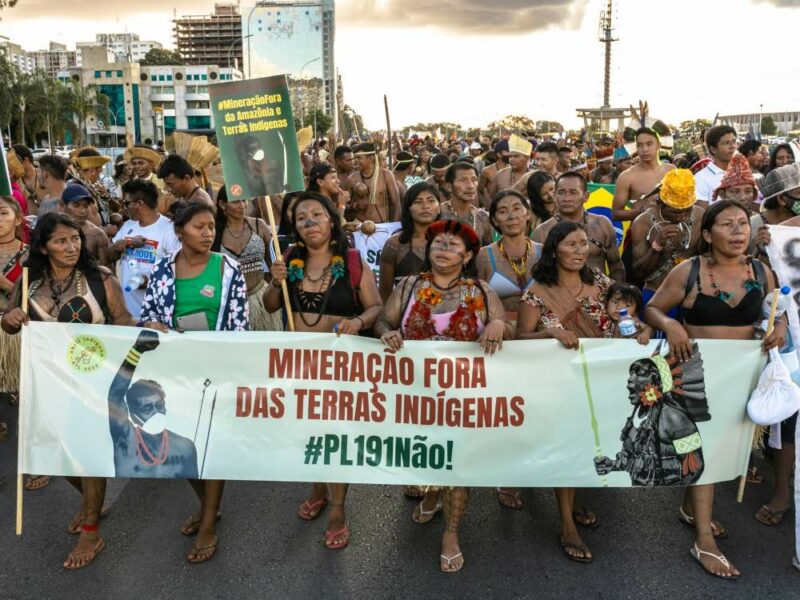Toronto, Canada – Amazon Watch released new research today, The Risks of Investing in Solaris Resources, that exposes the social, cultural, and human rights impacts related to Solaris Resources Inc.’s Ecuador mining operations, and the consequential environmental, business, and political risks faced by the company, its investors, and the mining sector writ large. The report was released during the Prospectors & Developers Association of Canada (PDAC) annual convention happening March 5-8 in Toronto, the world’s largest mineral exploration and mining summit. According to the research, investors attending PDAC should be wary and question the risks associated with Amazon mining in Ecuador, as many projects continue to be stalled and riddled with controversy.
Solaris Resources is conducting exploratory copper mining in a 10,000-hectare concession in Ecuador’s southeastern Amazon in a unique and fragile Andean-Amazon corridor known as the Cordillera del Cóndor, a biodiversity hotspot known for its rare and endemic species. The “Warintza Project,” as it is known, falls on the ancestral and titled territory of the Shuar Arutam people (PSHA), who number roughly 12,000. They are organized into 47 communities and hold collective land title to 232,533 hectares of rainforest, and are represented by their autonomous traditional government.
The PSHA have repeatedly rejected mining operations on their territory, and Solaris’ controversial efforts to move the project forward without consultation or consent have set the stage for conflict that puts the company’s signature project at risk. The research intends to leave PDAC attendees with the following warning: No investor should consider investing, nor should a larger company consider purchasing such a risky company.
Solaris has used divide and conquer tactics to manufacture consent for the project, cherry-picking two of the 47 communities directly affected, supplying financial incentives, and touting this limited local support as stakeholder buy-in for the whole project, while failing to have obtained the consent of the PSHA.
“Solaris Resources is trampling our rights as Indigenous peoples,” said PSHA President Josefina Tunki. “Their project is on our territory, and we have not given them our consent. We don’t want mining on our territories, and we have made that abundantly clear. Mining brings contamination, deforestation, rights violations, and violence. We have seen that firsthand because of their project. We demand that Solaris abandon the Warintza Project and that the Ecuadorian government cancel all mining concessions on our lands. We want our trees, rivers, plants, and all our sacred territory to be protected for us and future generations.”
Amazon Watch Climate, Energy, and Extractive Industry Director Kevin Koenig added, “Public sentiment in Ecuador against mining is surging because of the enormous damage it causes to waterways and ancestral territories. Indigenous leaders are suffering death threats and violence because of extraction on their lands. The risks of any continued mining in Shuar territory are too high, not only for Solaris, but for any Canadian company or investor looking to mine in the rainforest, and to the surrounding communities and the Amazon biome as a whole.”
The Risks of Investing in Solaris Resources can be read here.
Background
Ecuador is estimated to hold significant reserves of copper, gold, aluminum, and other metals, and exported an estimated $1.6 billion in mineral resources in 2021. President Guillermo Lasso seeks to boost the country’s mining export revenue from $2 billion in 2021 to $4 billion by 2025. But the country’s mining industry is facing significant opposition from Indigenous peoples, local communities, and environmental organizations. Flagship projects face delays, suspensions, and cancellations over environmental concerns and rights violations; local referenda in mineral-rich provinces are restricting mining activity; and a moratorium on all new mining concessions in the country is currently in effect.
These impacts and conflicts make the Warintza mine a high-risk project, demonstrating that large-scale mining in the Amazon is not feasible in times of climate and environmental crisis, nor at the expense of the rights of local communities.














